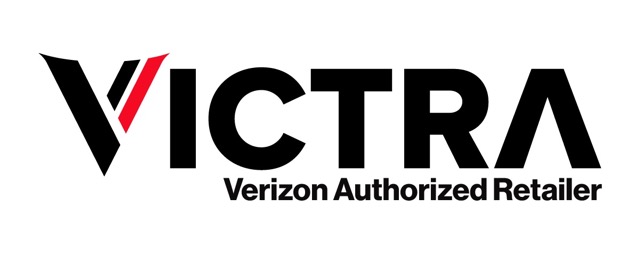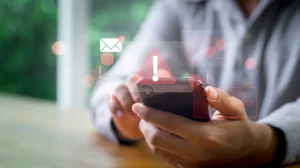Table of Contents
These days, the differences between 5G vs 4G are more noticeable than ever. 5G technology delivers much faster mobile internet and supports high-speed connections that rival Wi-Fi and cable. Now, artificial intelligence, the Internet of Things, smart cities, augmented reality applications, and self-driving cars are taking advantage of the benefits of 5G.
Let’s take a closer look at 5G vs 4G to see why 5G is becoming the next generation of mobile internet.
What’s the Difference Between 4G and 5G?
Understanding the difference between 4G and 5G starts with three key areas: availability, speed, and everyday convenience. As mobile networks continue to evolve, 5G becomes more relevant for those who rely on their phones for streaming, downloading, and staying connected.
While many devices still use 4G, 5G technology delivers major upgrades in performance and reliability.
Availability
Creating a mobile communication infrastructure capable of supporting 5G takes time. Still, 5G availability has expanded significantly, with major carriers offering nationwide coverage.
Verizon’s 5G network currently covers approximately 12.77% of the U.S. geographically, while its 4G LTE network remains more extensive, covering over 99% of the U.S. population. However, as infrastructure continues to develop, 5G networks are expected to further close the gap with 4G in terms of coverage.
To see the latest network coverage from Verizon for your address, click here.
5G Speed vs. 4G Speed
When you compare 4G vs. 5G speed, 4G is left in the dust. 5G provides peak data transfer speeds of 100 gigabits per second. That’s not only 100 times faster than 4G, it also beats the best home broadband networks.
Latency, the delay before data transfer begins, is also markedly improved. 4G networks usually have latency between 30 and 70 milliseconds, whereas 5G networks can achieve latency as low as 1 millisecond. This kind of internet will increase upload and download speeds, improve video calls even more, and allow users to watch 4K video on mobile devices without buffering.
Overall, 5G vs 4G speed and responsiveness are substantial, making 5G technology a massive advancement in mobile network performance.
Convenience
While 4G helped power the early wave of connected devices, it was never built to handle this scale of modern mobile use.
When it launched, connecting a few smartphones and tablets felt advanced, but today, everything from refrigerators to cars and smart speakers relies on mobile data. With billions of connected devices in use, 4G is now struggling to keep up with the demand.
5G technology makes everyday mobile use easier by supporting high bandwidth and low congestion, even with multiple devices online. Now, you can stay connected across various devices without relying on home Wi-Fi for stability, making 5G availability much more convenient than 4G.
Breaking it Down: Comparing 4G vs 5G
To give a quick summary, here’s how 5G vs 4G compare feature by feature.
| Feature | 4G LTE | 5G |
|---|---|---|
| Download Speed | Up to 100 Mbps (theoretical) | Up to 10 Gbps (theoretical) |
| Upload Speed | 10–50 Mbps | 1–3 Gbps |
| Latency | 30–70 milliseconds | As low as 1 millisecond |
| Technology Type | LTE (Long-Term Evolution) | mmWave, Sub-6 GHz, and mid-band |
| Coverage | Nationwide, well-established | Growing, strongest in urban areas |
| Device Support | Most current smartphones | Newer 5G-enabled devices only |
| Network Capacity | Moderate | High—supports more simultaneous devices |
| Use Case Focus | Streaming, browsing, video calls | Real-time apps, IoT, AR/VR, automation |
| Battery Efficiency | Generally stable | Improving with newer chipsets |
| Rollout Timeline | Since ~2010 | Began in 2019, still expanding |
What Are the Real World Applications of 5G vs 4G?
The difference between 5G vs 4G goes beyond speed and coverage: it changes how people interact with technology daily.
With stronger data performance, lower latency, and broader support for connected devices, 5G makes more possible with less delay and fewer interruptions. Here are some real-life examples of how 5G technology is utilized every day:
- Smart Cities: 5G supports real-time data sharing between traffic lights, public transportation, security systems, and utility infrastructure.
- Healthcare: Surgeons can now perform remote consultations and even procedures with robotic tools powered by low-latency 5G connections.
- Automotive: 5G enables instant communication between vehicles and road systems, improving the accuracy of navigation and safety features in real-time.
- Retail: Stores use 5G to power AR displays, virtual fitting rooms, and real-time inventory management.
- Gaming and Entertainment: Faster 5G speed allows mobile gamers to stream high-resolution content without lag and supports interactive AR/VR experiences.
- Manufacturing and Logistics: Factories and warehouses use connected sensors and automation tools that depend on high-speed, low-latency networks to function efficiently.
And, as more networks adopt 5G technology, its impact will continue to expand across everyday life.
Top 5G-Ready Phones to Consider
To take advantage of 5G speed, you’ll need a 5G-compatible phone. Most new phone models now support 5G and 4G networks. On the other hand, a 4G phone can only connect to a 4G network.
With a 5G phone, you can switch back and forth between 4G and 5G networks depending on your needs and whether or not 5G is available in the surrounding area.
Scroll through our list of 5G-ready phones below to discover what best suits your workflow or lifestyle.
Explore 5G Devices with Victra Today
Interested in accessing the speed and power of 5G? Drop by your local Victra store to talk to our friendly customer service representatives and find the 5G phone or tablet that fits your mobile device needs today.
Shop some of our top-selling 5G smartphones today, or visit a store near you for in-person advice or support regarding this high-speed internet and its capabilities.
5G vs 4G FAQs
What is 5G?
Do I need a new phone to access 5G?
Is 5G available everywhere that 4G is?
Will 5G replace 4G completely?
is a skilled Web Developer and Designer. He builds and designs websites that focus on best UI/UX practices. Justin is also a Verizon Product Expert at Victra, helping customers with Verizon products and services. His mix of design, coding, product, and general knowledge makes him a valuable and knowledgeable team member.





